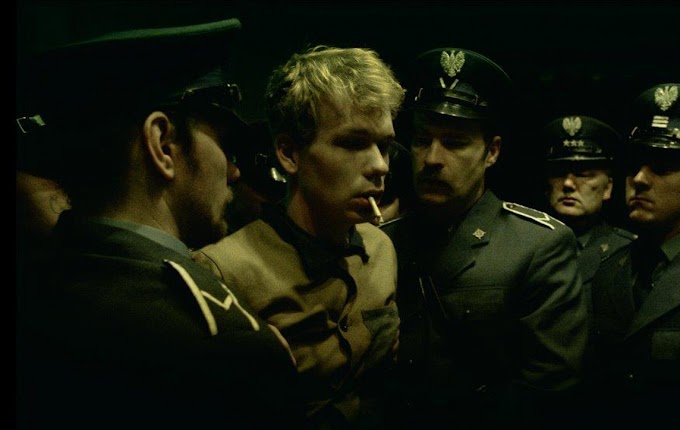New York Jewish comedian Alvy Singer meets Annie Hall, a young woman of provincial origin. Between them it's love at first sight, they spin perfect love, but the dreams of one are not the wishes of the other. Is this beautiful love story made to last?

Annie Hall's first scene begins with a Woody / Alvy monologue in which he speaks directly to the viewer; this scene, very close to the one man show, a genre in which the director has excelled for many years, seems to be a kind of bridge between his previous, burlesque films, and the rest of his career, made of deeper films. Indeed, this inaugural scene, although filled with humor, always balances between comedy and psychoanalytic references. The tone is set and the themes that will later enamel Woody Allen’s films are set here: love, sex, religion and death. The character of Alvy Singer is constantly in the grip of doubt, whether in his emotional life or his professional career (he plays the role of a scenic and television comic), as evidenced by this scene where, during a gala , he is afraid of going on stage just after another comedy, which according to him risks annihilating any chance of making his audience laugh.
Annie Hall, although very funny, is only the observation of a failed love story between two beings that finally everything separates. The constant use of flashback only reinforces this impression of state of the art, the return to the final background that reminds us of the scenes of the film accentuates this aspect and gives the whole a nostalgic aspect.
Alvy Singer comes from an urban, Jewish and popular; Annie Hall comes from a bourgeois, provincial and WASP background. These differences are highlighted during dinners in their respective families: at Alvy’s everyone speaks loudly, serves as he wants at the table while at Annie’s, the table is set and the atmosphere is calmer. Alvy then seems to find that these cultural differences will, in the long run, make the break with Annie inevitable, as if these social, religious and cultural divisions were impossible barriers to cross. The opposition between the two main characters is also symbolized by Alvy’s love for New York and Annie’s desire to move to Los Angeles, two cities that everything opposes. During the Californian scenes, the sun shines but everything seems empty, soulless, while in New York the picture of the film highlights warm and reassuring aspects.

Men and women cannot live together because they do not understand each other, and like any good inhabitant of the Big Apple, Alvy and Annie each follow a psychoanalysis (We will notice in this regard that at the beginning of the film Annie is surprised to learn that Alvy is followed for her psychic state, while a little later she herself will be followed; is this the Alvy/ Woody effect?). The future director of Manhattan, during a memorable scene where the two protagonists each go to their psychoanalyst, demonstrates this mutual misunderstanding. Alvy and Annie are asked the same questions by their respective therapists, answering them at the same time through an ingenious split-screen, but in a diametrically opposed way.
Annie Hall is also a bitter critic of the world of television and cinema: while in New York the characters talk about Fellini and go to see The Sorrow and Pity, in Los Angeles the cinemas broadcast B-series horror movies and the sitcoms are shot with pre-recorded laughs. It is rather paradoxical when we know how the films of Woody Allen, and especially Annie Hall, inspired many American sitcoms, with brilliance, like Friends or Seinfeld.
Entirely carried by her two main actors, Woody Allen and Diane Keaton (Woody Allen’s first muse before Mia Farrow), Annie Hall is a funny and nostalgic film, one of the peaks of Woody Allen’s career. The film won four Oscars in 1977, including the best film.

.png)

0 Comments